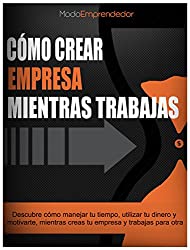
For many people in their twenties or thirties, career advancement trumps employer quality. Why? The higher you are in your career, the greater the opportunity to make a difference in your community. This was one of the key takeaways from the Global Shapers Annual World Economic Forum Community Survey, in which more than 1,000 Millennials from 125 countries participated.
If you are someone who is looking for advice to succeed in life, you may wonder what kind of tools you need to become a leader. What are these skills that will lead you to achieve it? How can I learn them? Andrew Likierman, Dean of the London Business School, shares his personal experience to provide some answers to these questions.*
“I took 4 things from my twenties that helped me a lot more in my life”
These are:
1. Choose a flexible career.
two. Learn to cope with economic crises, which inevitably hit you at some point in your life.
3. Have more interaction with different cultures.
Four. Develop communication skills.
These skills allowed her to move between public, private and academic life easily. The 72-year-old has, among other roles, been the non-executive director of the Bank of England and Barclays, as well as UK Treasury CEO and Chairman of the National Audit Office, not to mention having a long and e illustrious academic career.
So how can young people progress in their career and acquire these skills? Here is Andrew Likierman’s experience:
4 Tips to succeed in life.
1. Make decisions that give you flexibility.
“First of all, make sure you make decisions that give you flexibility. I studied politics, philosophy, and economics in college, and was determined to pursue an additional qualification with flexibility in mind: accounting. Nowadays what I would recommend to people is to study an MBA, but back then accounting was the established option to give flexibility. What is certain is that education opens many more options for personal development. The fact that people who graduate from an MBA do many different things is an indication of this.”
2. Learn to cope with economic crises.
Keep in mind that things are not always up.
“Second, be aware that things don’t always go up. When I started my career, there was an economic crisis: one of the biggest oil crises that hit the economy. It was then that I realized that what goes up must come down. My personal savings were affected. I was very exposed and it was a shock, but a good learning. Everyone needs a financial crisis, preferably early, so they learn that cycles are very important. We’ve had them for the last 250 years, they’re not going away now.”
3. Have more interaction with different cultures.
This will help you move between different sectors and countries, it opens your mind. When I was young I had a textile plant in Germany, it was an enriching experience. What I learned there was how people from different cultures work as well as how they treat other people. You can’t just “copy and paste” your assumptions about how business works, this experience was very interesting.
4. Develop communication skills.
Finally, it is transcendental to recognize the importance of communication. You can have amazing ideas, yet you can’t do anything with them if you don’t know how to communicate them. When I started my career as an accountant I met brilliant people, I even felt that they performed better than me. However, since they did not know how to communicate well, they did not advance in their career.
Also read: What communication millionaires think.
This is one of the things that I appreciate about learning in schools, it’s a safe learning environment where you have to learn these kinds of things. It’s better to have a presentation disaster in schools, where you learn, than in front of your clients.
*This was an interview conducted by Peter Vanham of the World Economic Forum. You can find the original article here.
Peter is a media leader in the United States and a member of the World Economic Forum. As he is also in the process of writing his book already entitled “Before I was CEO”, in which he shares experiences of different leaders before reaching the top.
And remember, if you are really interested in creating your own business, you can read our book “How to create a company while working: Discover how to manage your time, manage your money and motivate yourself while creating a company and working for another” , where you will find all the information you need to found your own company, without having to leave your job.


